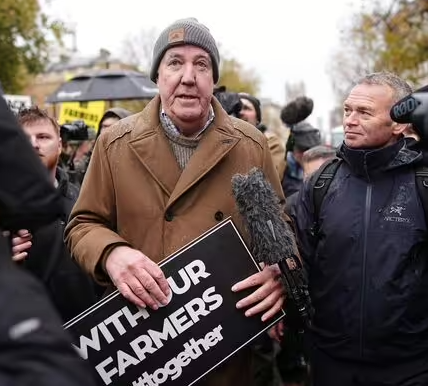Growth is stalling, jobs are vanishing and war clouds are gathering. But nobody told the Bank of England.

The Bank of England is holding rates too high and hurting UK economy (Image: Getty)
The UK is in dire straits and today its monetary policy committee (MPC) had the chance to ease the pain by cutting interest rates.
Even a modest 0.25% reduction would have helped but instead it held base rate at 4.25%, despite admitting that underlying UK GDP growth remains weak while “the labour market has continued to loosen”.
The economy shrank by 0.3% in April, more than expected. With Chancellor Rachel Reeves lurching from one error to another, further falls look likely.
A quarter of a million jobs have already gone, thanks largely to her madcap Budget decision to hike employer’s national insurance from April.
Businesses cut jobs and cancelled investment plans as a result, helping drive unemployment to a four-year high of 4.6% in the three months to April.
Yesterday, the Confederation of British Industry predicted unemployment will climb higher while GDP growth will slump to just 1.2% in 2025 and a barely there 1% next year.
The UK is groaning under a mountain of debt and taxpayers are spending £9billion a month just on the interest. A rate cut would have helped ease that burden but again – nothing.
This isn’t just timid. It’s dangerous.
The BoE is holding rates higher than necessary, and the result could be a full-blown downturn. Homeowners, consumers and businesses will suffer.
The MPC is worried about inflation, which was sticky at 3.4% in May, in yet another huge blow for Reeves. That’s well above the BoE’s 2% target, but well below the 11.1% peak during the energy crisis in October 2022.
Rate setters are also nervously watching the Middle East.
Oil has jumped more than 10% to $75 a barrel. If Iran retaliates against Israeli strikes and blocks the Strait of Hormuz, JP Morgan warns oil could hit $130. That would quickly push up pump prices and inflation.
But higher UK interest rates won’t cool global tensions or reopen shipping lanes. And while oil-driven inflation spikes, it usually doesn’t last.
Expensive energy makes people and firms poorer. They spend less, which brings economic activity and prices back down. Fast.
In the end, surging oil prices are deflationary. And when that happens, the BoE will have to act fast, slashing rates to stop the economy from nosediving.
A cut today would have been a good start. Three MPC members voted for just that, but six said hold. So now we have to wait until August 7, seven weeks away, and cross our fingers.
Markets expect a cut then, with one more in November, taking the rate to 3.75%. That’s good news for savers at least, and they should lock into today’s 4%+ rates while they can.
But it spells yet more misery for mortgage holders and borrowers. Average repayments are up 38% in three years, Equifax says. That’s squeezing households, and the housing market.
Rachel Reeves desperately needed the BoE to bail her out today. It abandoned her. And us.
Now we have to wait until August. By then, even more damage will have been done.

